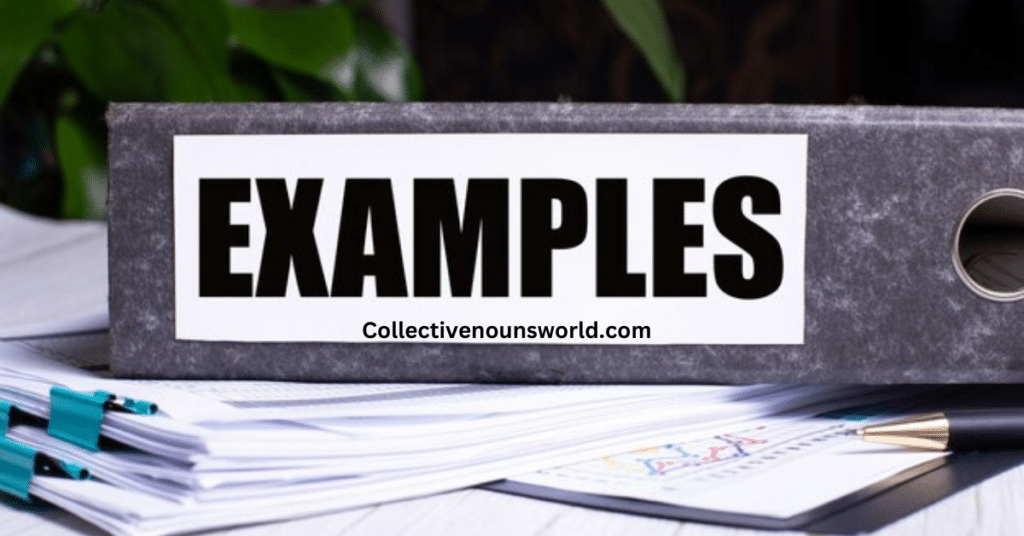Roll Call vs. Role Call: The Essential Difference You Need to Know
The terms roll call and role call are often confused, but knowing the difference is crucial for clear and accurate communication. While both phrases sound similar, only one of them is correct when referring to the process of checking attendance.
Understanding the distinction not only helps you avoid common grammar mistakes but also ensures you’re using the right term in schools, meetings, and military settings. Whether you’re verifying attendance in a classroom or conducting a headcount at a meeting, mastering this small detail can make a big difference in how you’re understood.
Understanding Roll Call and Role Call
What is Roll Call?
Roll call is the process of calling names in order to check attendance and ensure that everyone is present. This is a term used in various settings such as schools, workplaces, and the military. The purpose of roll call is simple: to make sure everyone is accounted for. For example, when a teacher begins class, they might start with classroom roll call to check that all students are there. In the military, military roll call serves the same purpose, ensuring soldiers are present before starting the day’s activities.
The term “roll call” is also used in meetings, events, and any situation where people need to be verified for presence. It is an attendance check that helps organizers track who is present and who might be missing.
What is Role Call?
On the other hand, role call is a misuse of the term roll call. The confusion arises because the word role refers to a part or function someone plays in a group or situation. For example, your role in a group might be a leader, a participant, or an observer. However, when checking attendance, we are not referring to someone’s role or function, but rather their presence in a group. Therefore, the correct term is “roll call,” not “role call.”
Using “role call” in this context is incorrect because it confuses the concept of checking who is present with defining a person’s function or purpose in a group. So, next time you’re trying to figure out who is in a room, remember: it’s “roll call,” not “role call.”
Side-by-Side Comparison: Roll Call vs. Role Call
Key Differences Between Roll Call and Role Call
The key difference between “roll call” and “role call” lies in their meanings. Roll call refers specifically to the process of checking attendance by calling names. It’s all about confirming who is present and who is missing. It’s about accounting for presence.
In contrast, role call isn’t actually a correct term in this context. The word role refers to someone’s job or position within a group, but it has nothing to do with checking if people are there. Therefore, role call is a mistake when talking about attendance checks.
When to Use “Roll Call” vs. “Role Call”
You should always use roll call when referring to the attendance process. Whether you’re at a school, a meeting, or a military unit, roll call is the term that fits. For example, a teacher’s roll call checks the list of names to ensure that all students are present. Similarly, a military roll call ensures that all soldiers are accounted for at the beginning of their shift.
“Role call” has no place in this context, and it’s best to avoid using it altogether. If you’re ever unsure, remember that roll call is about verifying attendance, while role refers to a position or function.
Read more about Oversight vs Oversite: Avoid Common Spelling Mistakes
Everyday Usage of Roll Call and Role Call
How Roll Call is Used in Schools, Workplaces, and the Military
In schools, workplaces, and the military, roll call is an essential attendance check. For example, before a class begins, the teacher calls out the name list of students to make sure no one is absent. This attendance verification ensures that everyone is present and ready to participate.
Similarly, in a military roll call, soldiers are counted and their presence is verified before a mission or operation begins. This accounting for presence helps ensure that everyone is available and ready for their duties. In workplaces, roll call can be used in meetings to ensure all necessary members are present for discussions.
Role Call in Common Misunderstandings and Mistakes
A common mistake is to use the term role call when you really mean roll call. People sometimes confuse the word role with roll, thinking that both are interchangeable. However, role call is not a correct term when checking attendance. Using the wrong term can make you sound unprofessional or unclear, so it’s important to use roll call when referring to checking attendance.
Roll Call: Definition and Usage

What Does Roll Call Mean?
The term roll call refers to the process of checking attendance by calling out names to ensure everyone is present. It’s an important attendance procedure used in schools, meetings, and the military. This process allows organizers to know who is present and who is absent. The term has its roots in old attendance systems where each person’s name was listed on a “roll,” and they were marked as present when their name was read out.
When and Where is Roll Call Used?
Roll call is commonly used in various settings like classrooms, workplaces, and military units. For instance, in classroom roll call, teachers call out a list of participants to verify that all students are accounted for. In the military, roll call happens daily to ensure that all members are present before moving forward with any activities. The attendance system works by verifying attendance and ensuring accountability in any situation where presence is required.
Is It Role Call or Roll Call?
Be Confident About Grammar
Understanding the difference between “roll call” and “role call” is essential for good grammar. Roll call is the correct term to use when you are verifying attendance. If you use role call instead, it creates confusion and makes your message unclear. Make sure to remember that roll call refers to checking who is present, while role refers to a position or responsibility in a group.
Why Role Call is Incorrect
“Role call” is a misuse of the term “roll call.” The word “role” refers to someone’s position or function, not their presence. Therefore, using the word “role” when you’re referring to checking attendance is incorrect. Roll call, on the other hand, is the right term for confirming who is in a group and who is not. The confusion often arises because both words sound similar, but they have completely different meanings.
Read more about Piece or Peice? Guide to Spelling it Right Every Time
Do You Take Roll or Take Role?
Correct Usage of “Take Roll”
The correct phrase is “take roll”, not “take role.” For example, you would say, “The teacher will take roll at the start of class.” This means the teacher will call out the names of the students to check attendance. “Take role” doesn’t make sense and is grammatically incorrect. Remember, take roll is the proper phrase to use when verifying attendance.
Examples of Roll Call in Sentences
Sample Sentences Using Roll Call
Here are a few examples of roll call in sentences:
- The teacher began the roll call by calling out each student’s name.
- Roll call was taken at the start of the meeting to ensure all team members were present.
- During military roll call, each soldier’s name was checked off to ensure full attendance.
- At the school assembly, the principal conducted a quick roll call.
These examples show how roll call is used in everyday situations to ensure that everyone is accounted for.
Understanding “Role Call”
Meaning of Role Call
Role call is simply an incorrect term. People often mistakenly use it when they mean roll call, but the term role call does not exist in this context. Role refers to someone’s part or function in a group, but when we are talking about attendance, the correct term is roll call.
Common Mistakes with Role Call
The main mistake people make is using role call instead of roll call. This can happen because the two words sound similar. However, it’s important to remember that roll call is the correct term for checking attendance, while role is about a person’s job or function in a group.
Roll Call: Meaning and Examples

Meaning of Roll Call
The meaning of roll call is simple: it’s the process of calling out a list of names to check who is present and who is absent. It’s a form of attendance verification that helps organize groups.
Examples of Roll Call in Action
Here are a few examples that show roll call in action:
- At the start of every military roll call, the commanding officer calls each soldier’s name.
- Before starting the meeting, the manager conducted a quick roll call to make sure all participants were present.
- During classroom roll call, the teacher ensures that all students are accounted for before the lesson begins.
These examples demonstrate how roll call is used to verify presence
in different environments.
Read more about Where Does “How is your Day Going?” Originate From?
Learn Similar and Opposite Words to Spot the Difference
Synonyms for Roll Call
Synonyms for roll call include terms like attendance check, roster check, and headcount. These words can be used in similar contexts, though roll call is the most common term for checking attendance.
Antonyms for Roll Call
The opposite of roll call might include words like absenteeism, which refers to being absent without permission, or ignoring when attendance isn’t checked at all. These terms highlight the importance of accounting for presence during meetings or classes.
Tricks for Mastery
How to Remember the Difference Between Roll Call and Role Call
A good trick to remember the difference is to think of roll call as something you do to ensure attendance verification. If you’re checking attendance, it’s roll call. If you’re referring to someone’s position in a group, that’s when you use role. The term role has nothing to do with checking attendance, so just remember that roll call is the right one for attendance.
Practice English with the Promova App and Avoid Misusing Confusing Words

To master these terms, using an app like Promova can help. The app is designed to help learners practice grammar and avoid mistakes like using role call instead of roll call. It also offers exercises that help you perfect your attendance procedure and clarify the meaning of confusing words.
The Importance of Correct Communication in Roll Call
Clarity in Communication
Correctly using roll call ensures clarity in communication. If you use the wrong term like role call, it can cause confusion. Whether in meetings, schools, or the military, using the correct attendance process ensures everyone understands that names are being called to verify presence.
Mitigating Confusion in Team Collaboration
How Correct Terminology Improves Communication
When you use the correct term, roll call, it helps improve communication within your group or team. It makes sure that everyone understands the purpose of the attendance check and avoids confusion. Using the wrong term, role call, can make your intentions unclear.
Conclusion
knowing the difference between roll call and role call is important for clear communication. Roll call refers to checking attendance by calling names, while role call is a common mistake. Using the correct term helps avoid confusion and makes your speech more accurate.
Whether you’re in a classroom, meeting, or military setting, getting this right is key. It shows attention to detail and enhances your credibility. So, always remember to use roll call when talking about attendance checks.

Luna Jasper is an experienced blogger with a passion for language and grammar. At **Collective Nouns World**, she shares her expertise in exploring the fascinating world of collective nouns, making learning both engaging and fun. With years of writing and research under her belt, Luna’s insightful articles help readers understand and appreciate the English language.







